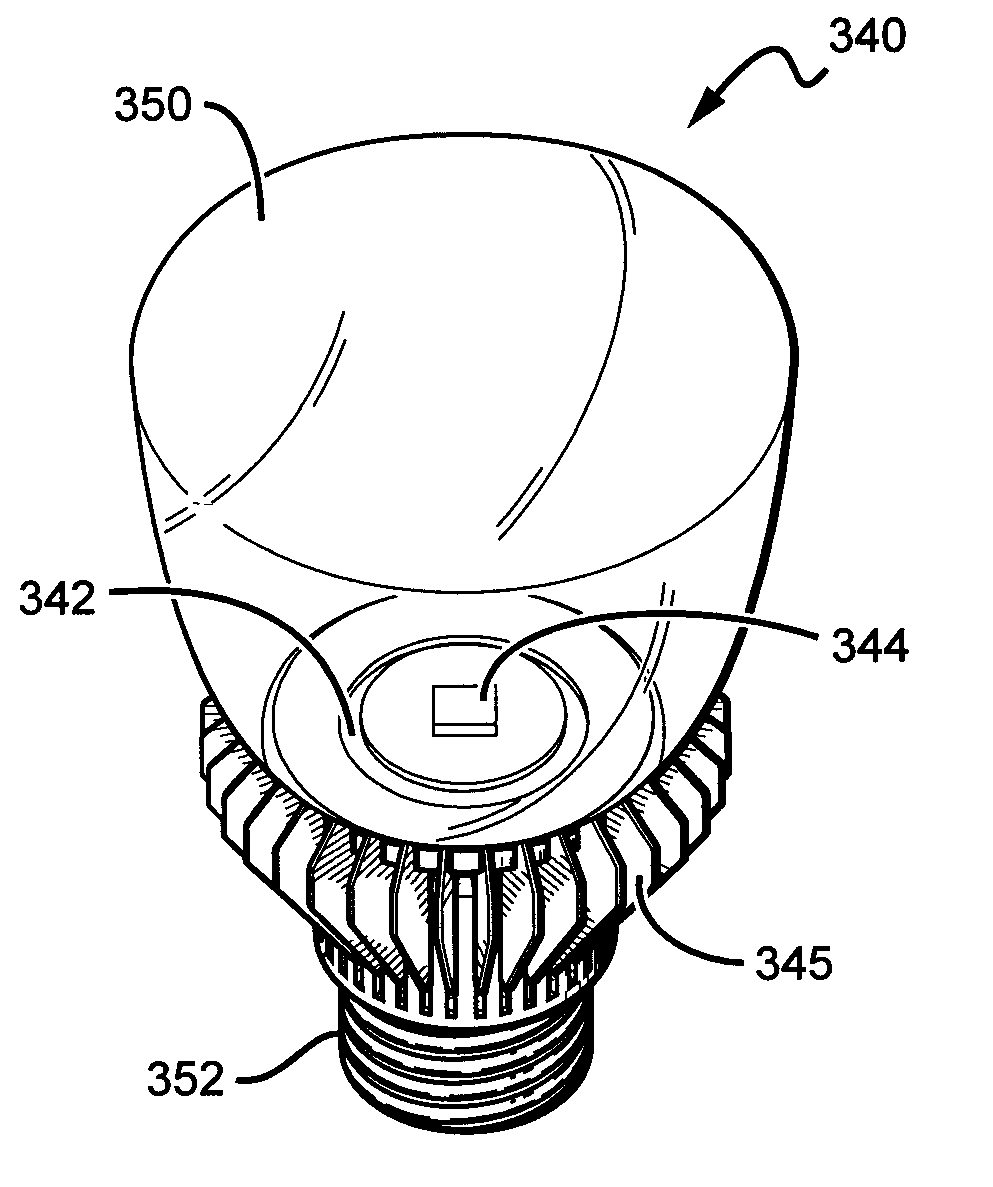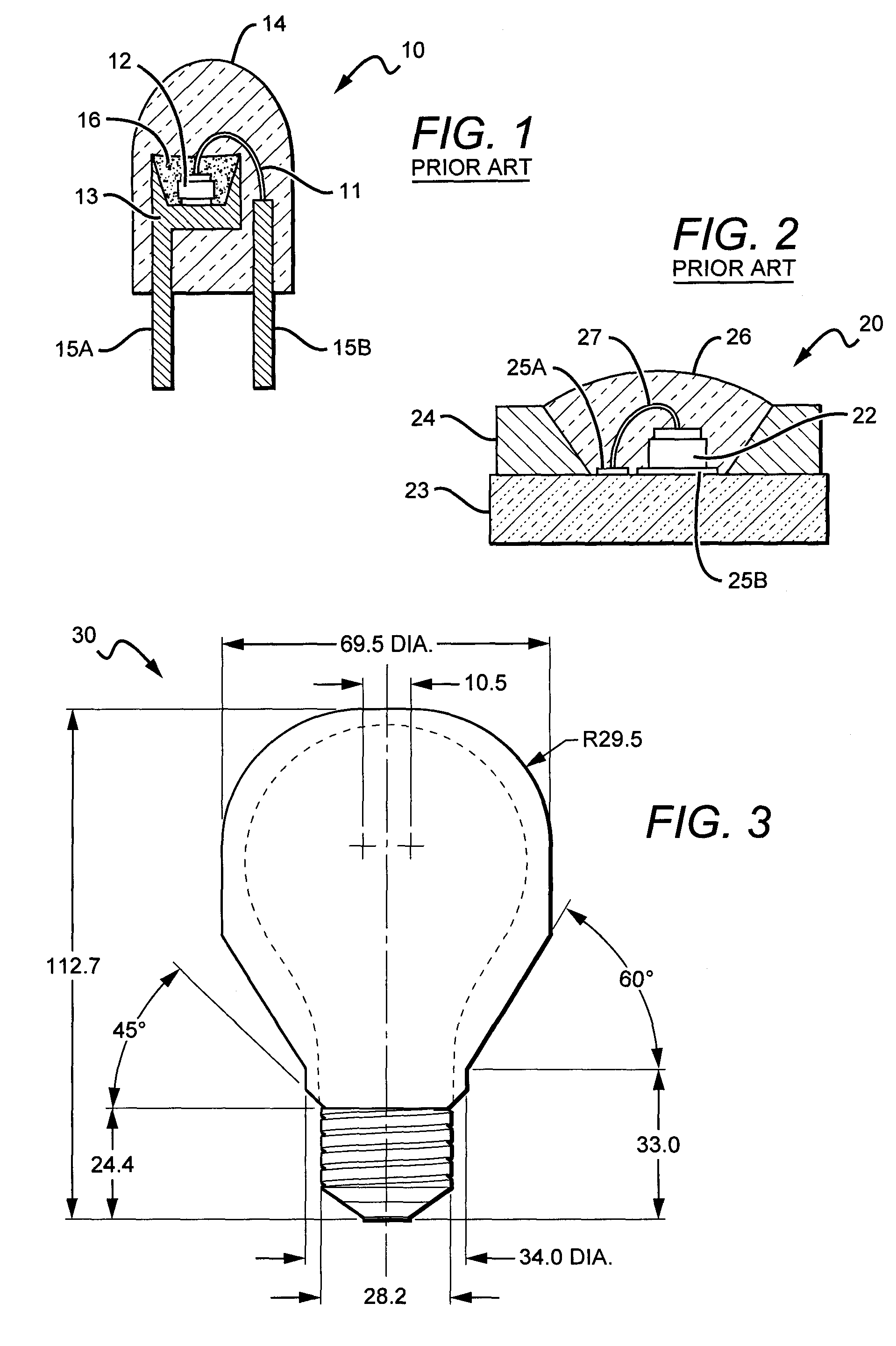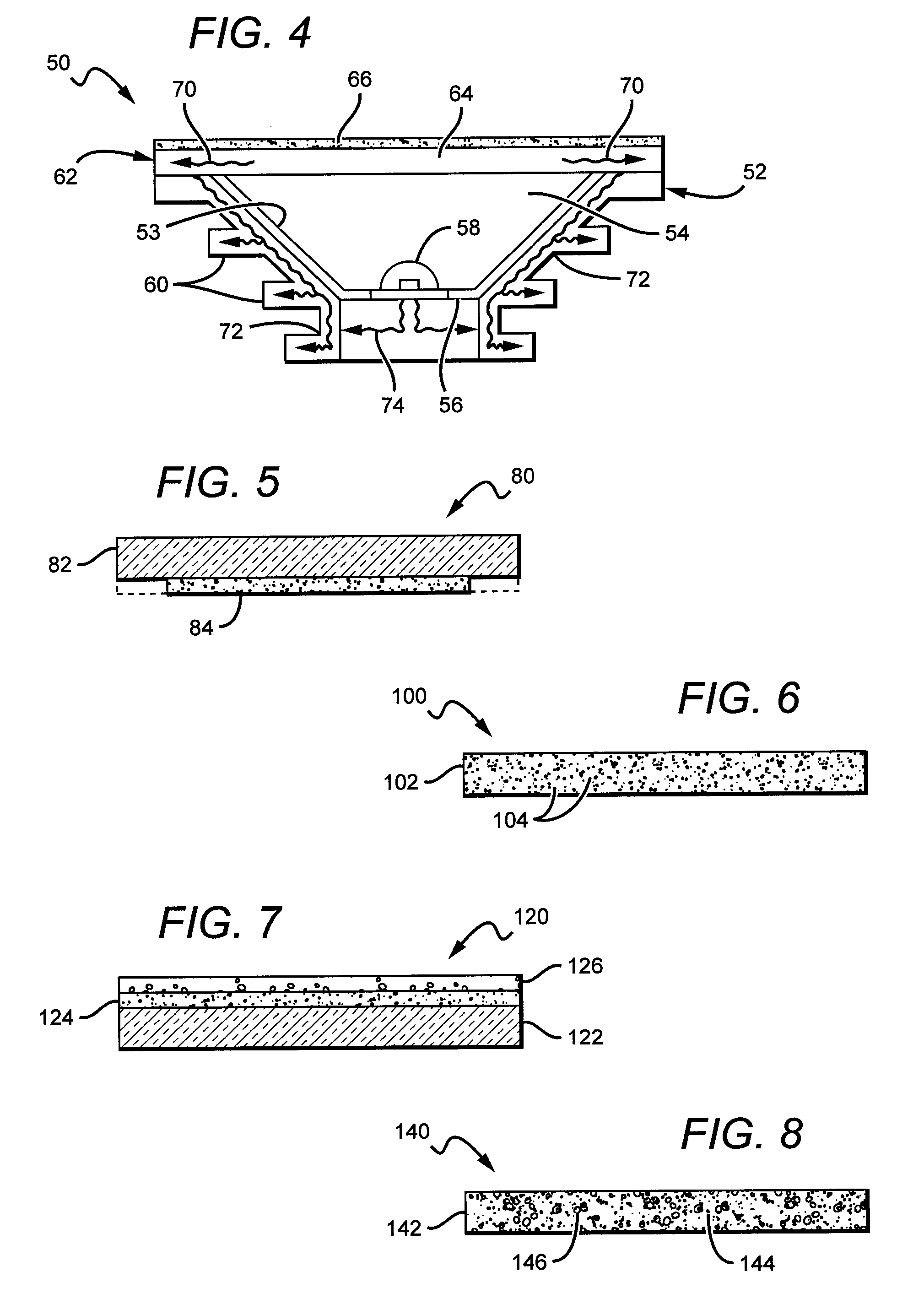LED lamp incorporating remote phosphor and diffuser with heat dissipation features
a technology of phosphor and diffuser, which is applied in the direction of discharge tube main electrodes, semiconductor devices of light sources, lighting and heating apparatus, etc., can solve the problems of heat retention, optical loss may occur when the light is reflected, and experience some limitations based on the device structure, so as to reduce or eliminate the negative impact, reduce or eliminate the spread of heat, and reduce or eliminate the effect of loss
- Summary
- Abstract
- Description
- Claims
- Application Information
AI Technical Summary
Benefits of technology
Problems solved by technology
Method used
Image
Examples
Embodiment Construction
[0050]The present invention is directed to different embodiments of lamp or bulb structures comprising a remote conversion material that can be arranged so that less heat from the emitters heats the conversion material, with the remote conversion material also capable of being operated without the substantial build-up of heat in the conversion material due to the light conversion process. This reduces or eliminates the negative impact that elevated temperature can have on efficiency and reliability of the conversion material. The present invention is also directed to lamps comprising features that mask the conversion material from the view by the lamp user, and can also disperse or redistribute the light from the remote conversion material and / or the lamp's light source into a desired emission pattern.
[0051]Different embodiments of the lamps can have many different shapes and sizes, with some embodiments having dimensions to fit into standard size envelopes, such as the A19 size env...
PUM
| Property | Measurement | Unit |
|---|---|---|
| reflectivity | aaaaa | aaaaa |
| reflectivity | aaaaa | aaaaa |
| reflectivity | aaaaa | aaaaa |
Abstract
Description
Claims
Application Information
 Login to View More
Login to View More - R&D
- Intellectual Property
- Life Sciences
- Materials
- Tech Scout
- Unparalleled Data Quality
- Higher Quality Content
- 60% Fewer Hallucinations
Browse by: Latest US Patents, China's latest patents, Technical Efficacy Thesaurus, Application Domain, Technology Topic, Popular Technical Reports.
© 2025 PatSnap. All rights reserved.Legal|Privacy policy|Modern Slavery Act Transparency Statement|Sitemap|About US| Contact US: help@patsnap.com



